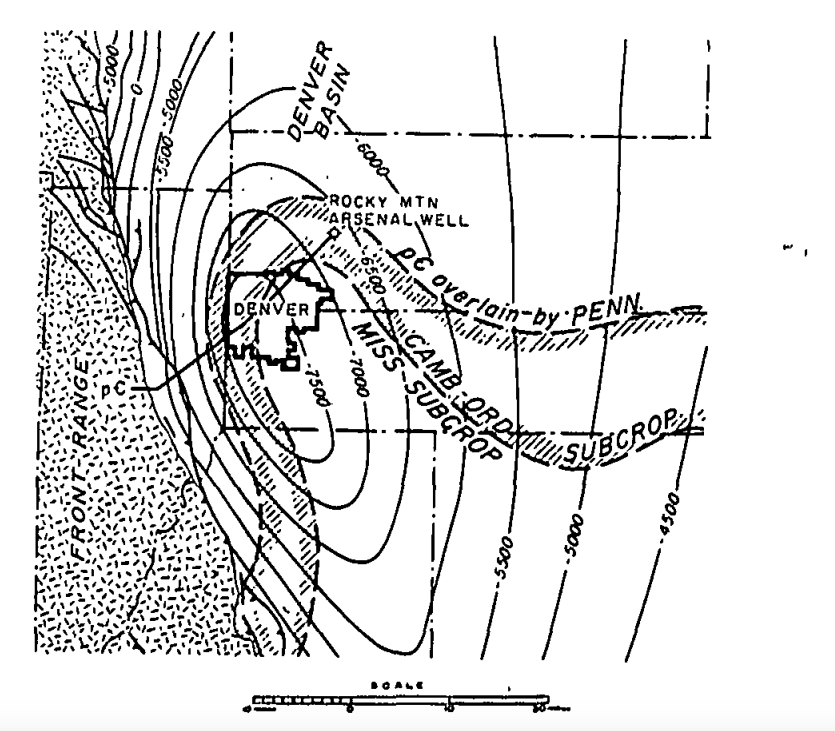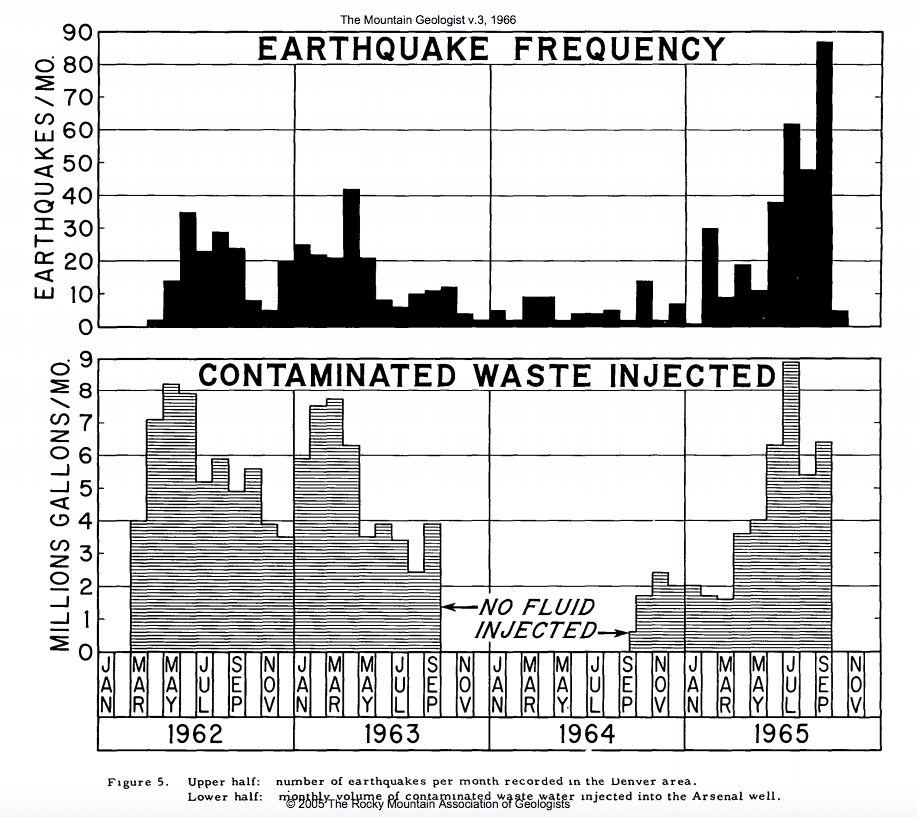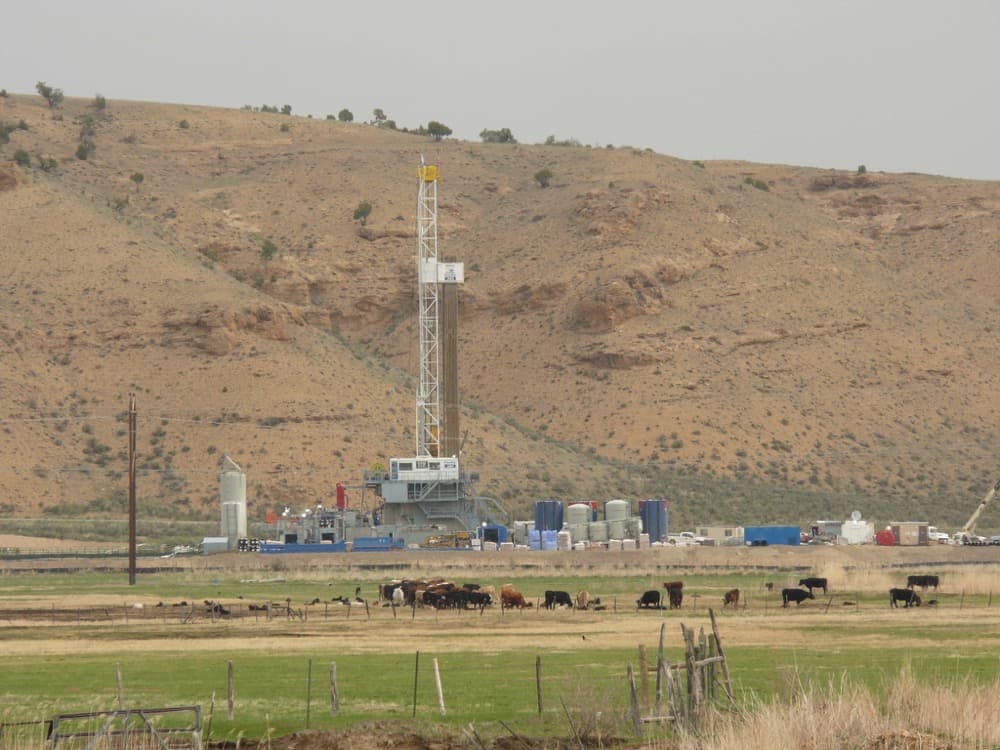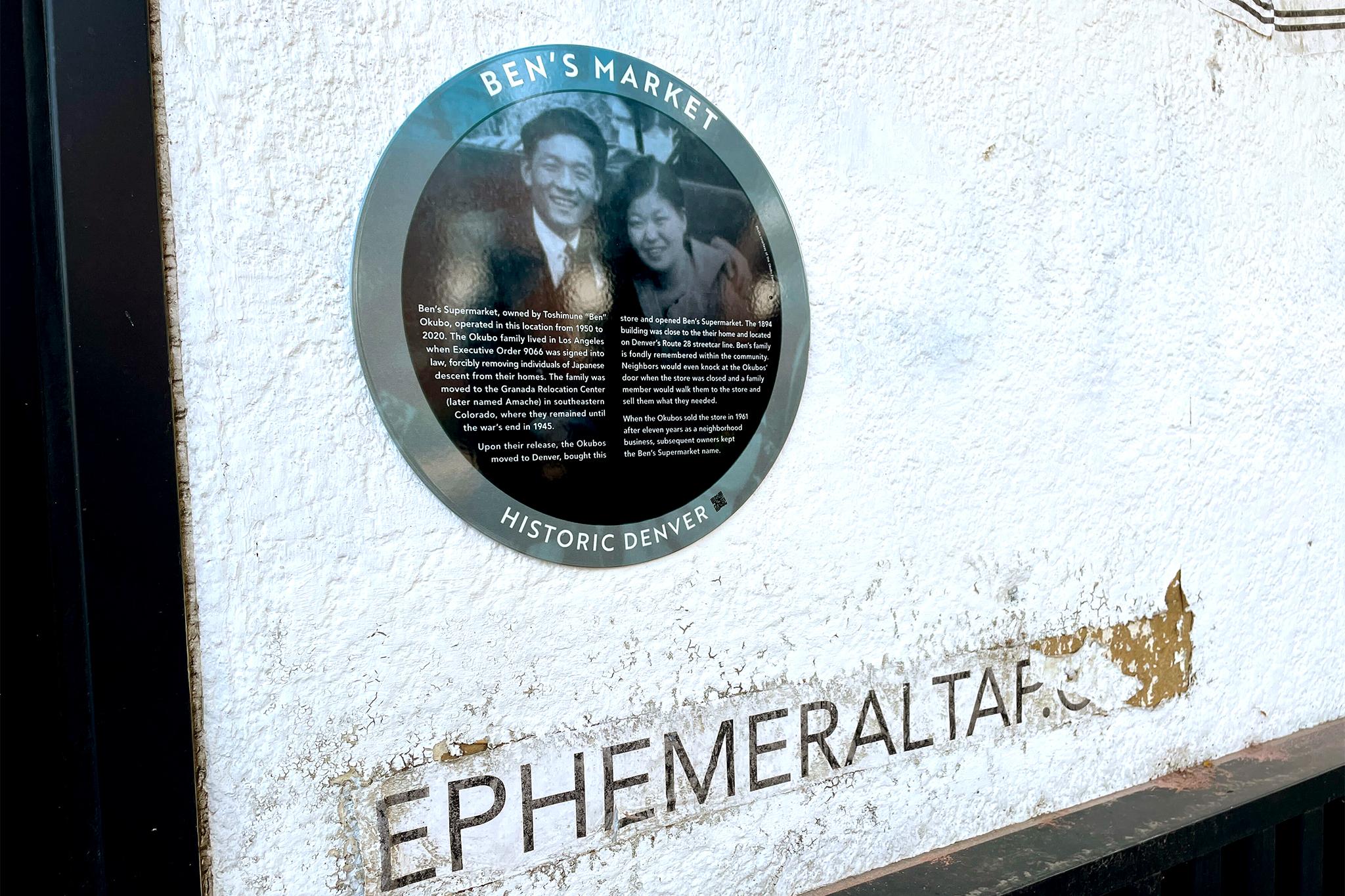Researchers recently made another link between oil and gas operations and earthquakes in southern Colorado and New Mexico.
A new CU-Boulder study finds that a "rash" of more than 1,800 earthquakes from 2008 to 2010 were likely due to the way that drilling operations inject wastewater deep underground.
It represents yet more evidence on an idea that has been researched for more than 50 years. In fact, much of what we know about it began in Denver.
Back in 1961, crews at Rocky Mountain Arsenal began pumping wastewater into a deep well near the weapons plant. More than 700 smaller earthquakes were recorded in the next few years.
In 1966, geologist David Evans wrote a paper connecting the new well to the earthquakes, as PBS reported. The military shut down the well, but the tremors continued for 15 more years, growing as strong as 4.8, per PBS.


Since then, numerous studies have linked drilling operations to earthquakes. The new one out of Boulder is the first to suggest a specific cause for the Raton Basin in Colorado and New Mexico. The researchers believe that the injection of the wastewater may be raising pressure on the "basement" layer several miles deep.
The strongest of the 2008-2010 earthquakes rated about 4.3 on the Richter scale -- violent enough to be felt, but generally causing only "minor damage," according to Michigan Tech.
Colorado regulators and Gov. John Hickenlooper have "taken a more proactive stance" on the issue recently, according to a Colorado State University study. In 2014, earthquakes near Greeley led officials to order shutdowns.
The CU-Boulder study did not look at fracking, or hydraulic fracturing. Fracking itself generally isn't the cause of manmade earthquakes, according to the U.S. Geological Survey.
Instead, most are caused by wastewater injection, which can happen at drilling sites of all kinds, according to USGS. Manmade seismicity can happen even at places 10 miles or further from the injection site, per USGS.
It's also possible that fracking has directly caused earthquakes in Western Canada, according to recent research in Science. And even if it doesn't, it has allowed drilling -- and, therefore, earthquakes -- in new locations.













